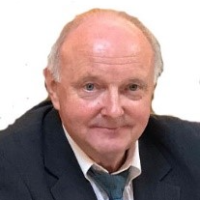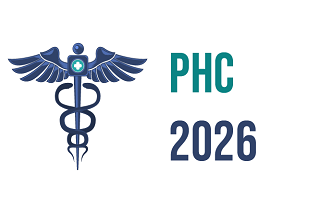5th International Conference on
Primary Health Care
November 26-27, 2026 | Dubai, UAE

PHC 2026

University of Regensburg, Germany
Abstract:
Healthcare systems around the world are undergoing an organizational, methodological and technological transformation towards personalized, preventive, predictive, participative precision (5P) medicine ecosystems. These ecosystems consider individual health status, conditions, genetic and genomic dispositions in personal social, occupational, environmental, and behavioral contexts. For designing and managing the resulting highly interdisciplinary, complex, distributed and dynamic ecosystem, we must formally and consistently represent the system and its components at necessary granularity levels from the perspective of all actors including the subject of care. As those actors from different domains have different education, skills, and experiences, using different methodologies, languages and terminologies, communication and cooperation, i.e. interoperability, must advance from the data level (data sharing) to the knowledge level (knowledge sharing). To understand the business system, it must formally represent each considered use case structurally and functionally. Therefore, the design, implementation and management of intelligent and ethical transformed ecosystems must be realized, using a system-theoretical, architecture-centered, ontology-based and policy-driven approach, developed by the author over the last 30 years. The related model and framework has been meanwhile standardized as the ISO 23903 Interoperability and Integration Reference Architecture, defined as mandatory for any specification or project at ISO, CEN, IEEE, OMG, etc., addressing more than one domain. Thereby, it manages also security, privacy and trust in detail. The Keynote introduces necessary standards and methodologies for designing and managing 5P medicine ecosystems as well as practical examples.
Biography:
Dr. Bernd Blobel studied Mathematics, Technical Cybernetics and Electronics, Bio-Cybernetics, Physics, Medicine and Informatics at the University of Magdeburg and other universities in the former GDR. He received his PhD in Physics with a neurophysiological study. Furthermore, he performed the Habilitation (qualification as university professor) in Medicine and Informatics. He was Head of the Institute for Biometrics and Medical Informatics at the University of Magdeburg, and thereafter Head of the Health Telematics Project Group at the Fraunhofer IIS in Erlangen. Thereafter, he acted until his retirement as Head of the German National eHealth Competence Center at the University of Regensburg as well as Head of the globally unique International Interdisciplinary PhD and PostDoc College. He was and is still leadingly involved in many countries health digitalization as well as electronic health record strategy. He published more than 600 papers, published/edited many books and supervised a big number of PhD students from all around the world. He was German Representative to many SDOs such as HL7, ISO, CEN, OMG, IEEE, ASTM, SNOMED, etc., also chairing the national mirror groups. Furthermore, he still engaged in international higher education. Dr. Bernd Blobel studied Mathematics, Technical Cybernetics and Electronics, Bio-Cybernetics, Physics, Medicine and Informatics at the University of Magdeburg and other universities in the former GDR. He received his PhD in Physics with a neurophysiological study. Furthermore, he performed the Habilitation (qualification as university professor) in Medicine and Informatics. He was Head of the Institute for Biometrics and Medical Informatics at the University of Magdeburg, and thereafter Head of the Health Telematics Project Group at the Fraunhofer IIS in Erlangen. Thereafter, he acted until his retirement as Head of the German National eHealth Competence Center at the University of Regensburg as well as Head of the globally unique International Interdisciplinary PhD and PostDoc College. He was and is still leadingly involved in many countries health digitalization as well as electronic health record strategy. He published more than 600 papers, published/edited many books and supervised a big number of PhD students from all around the world. He was German Representative to many SDOs such as HL7, ISO, CEN, OMG, IEEE, ASTM, SNOMED, etc., also chairing the national mirror groups. Furthermore, he still engaged in international higher education.
